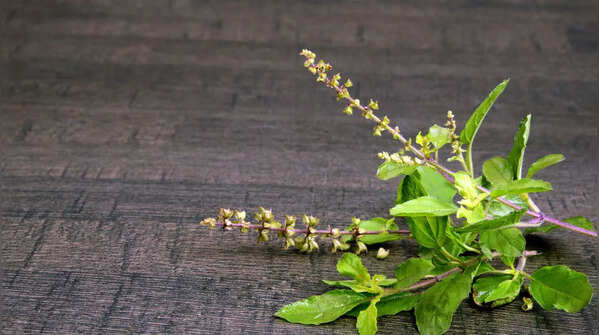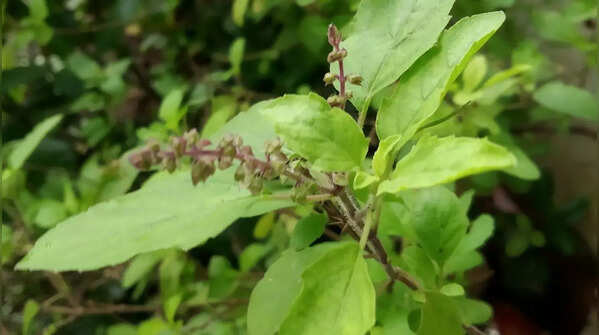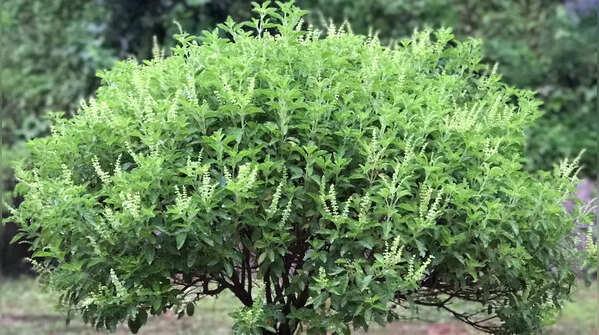- News
- lifestyle
- soul-search
- Why it is advised to never chew on Tulsi leaves
Why it is advised to never chew on Tulsi leaves

Worshipping Tulsi
Tulsi is one of the most religious plants in India, especially for Hindus, and is also famous for its herbal uses and its positive Vastu points. Popularly known as Holy Basil, Tulsi is extremely sacred to the Hindu culture and Ayurveda.
It is said that Tulsi, as a plant, is the manifestation of Maa Lakshmi, and a home where the Tulsi plant remains healthy, is a home where prosperity and luck never leave the gate. It protects the people from negative energies, doom, and even ailments with its leaves.
The respect for Tulsi is such that there is also a day dedicated to Tulsi Vivah, where she is married to Shaligram, a form of Lord Vishnu.

The story of Shankhchud and Lord Shiva
One of the most famous legends about Maa Tulsi is related to Shankhchud, Lord Vishnu, and Lord Shiva.
It is said that Shankhchud was a devoted husband, but also a demon, and his strength came from his wife Tulsi's chastity and devotion to Lord Vishnu. To defeat Shankhchud, Lord Vishnu took the form of her husband and tricked her into breaking her chastity, thereby stripping Shankhchud of his divine power. Post this, he was defeated by Lord Shiva, but Tulsi could not take this deceit, and cursed Lord Vishnu. It is said that after this Lord Vishnu blessed Tulsi for her devotion, and turned her into a sacred plant that is forever associated with Lord Vishnu himself.

Consuming Tulsi leaves
A plant that is blessed by Lord Vishnu himself is of course held in high regard by men and women all around the world. Tulsi is an important herb in Ayurveda due to its medicinal properties. Tulsi leaves help improve immunity, digestion, and acts as a natural remedy for colds, coughs, and infections. Be it in the form of teas, or as a 'kadha', or even just extracting its juice and drinking it straight, people do it all.
People also drink Tulsi tea as a herbal medicine and is used to treat different illnesses. But, it is never advised to chew on Tulsi leaves. Why? Read on to know.

The medical reason
As people run first towards medical reasons to avoid something, we list it first.
According to reports, Tulsi leaves contain mercury and iron, which, when chewed and released in the mouth, can be harmful to the teeth. These elements are said to lead to enamel erosion and discolouration of teeth over time. Tulsi leaves have a high amount of ursolic acid, which can cause a mild burning sensation in the mouth and affect dental health. And so regular chewing can lead to damage to tooth enamel.

Spiritual reasons to not chew Tulsi leaves
There are also some spiritual reasons why it is advised to not chew on Tulsi leaves. It is said that as Tulsi is a sacred plant and a manifestation of Goddess Lakshmi, chewing the leaves is seen as an act of disrespect. As there is a certain energy of Maa Lakshmi in the Tulsi leaves, chewing on them could be harmful to the energies around you.
Plus, in religious ceremonies, Tulsi leaves are placed in holy water or used in prasad offerings, and thus instead of chewing them, it is best to swallow them whole.









